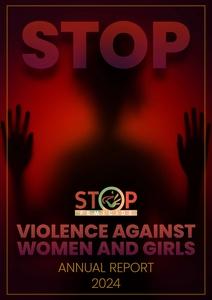
On a recent episode of the podcast 51 Percent human rights activist Marjan Keypour discussed a troubling new report on violence against women in Iran. As the founder of the Alliance for Rights of All Minorities and its project Stop Femicide Iran, Keypour has been tirelessly working to address the issue of femicide in the country. The report sheds light on the horrifying trend of men killing women, often their intimate partners or family members, with alarming frequency. The situation has reached a critical point, demanding urgent attention from both the Iranian authorities and the international community.
The ongoing women's rights movement in the Islamic Republic of Iran has gained momentum, with widespread demonstrations sparked by the arrest of 22-year-old Mahsa Amini for not wearing her hijab properly. These protests have transcended their initial focus on women's treatment under the regime, morphing into a broader demand for change from both men and women. However, the most distressing aspect of this movement is the rising incidence of femicide, where women and girls are murdered to preserve the so-called "honor" of their families.
According to the report presented by Marjan Keypour, femicide is on the rise in Iran. In 2022 alone, there were 191 documented cases of femicide across the country. Shockingly, the data reveals that a woman is killed every 36 hours in Iran. However, the actual numbers may be higher due to underreporting and families' reluctance to disclose such heinous acts.
The report highlights disturbing patterns in the femicide cases. One tragic finding is that the names and memories of the victims are often erased, with many being buried in an unnamed cemetery without gravestones. This indicates a society that does not adequately value the lives of its women and girls. The issue is not limited to rural areas; around 30 percent of femicide cases occurred in the urban center of Tehran, challenging the misconception that this violence is confined to less developed regions.
The perpetrators of femicide display a shocking level of violence and cruelty. In approximately 37 percent of cases, the victims were stabbed multiple times in relentless attacks. In 20 percent of cases, the murderers used their bare hands to strangle, beat, kick, and punch their victims until they lost consciousness and tragically lost their lives. Such brutality reflects a deep-rooted illness in the society, where women and girls' lives are seen as disposable and insignificant.
The report emphasizes that femicide is perpetuated not just due to cultural beliefs but also due to the lack of consequences for the perpetrators. The law in Iran allows men to escape serious punishment for killing women, reinforcing the perception that women are second-class citizens with limited legal protection. This highlights the urgent need for legal reforms to address the issue effectively.
Marjan Keypour's organization advocates the adoption of the protection of women against violence law to act as a deterrent against femicide. However, legislative efforts in Iran have been met with resistance, hindering meaningful change. The report calls on international human rights bodies to exert pressure on the Iranian government to uphold its obligations and implement necessary legal reforms.
The international community has a crucial role to play in supporting women's rights in Iran. Keypour urges activists and feminists worldwide to advocate for change and apply pressure on the Iranian government. Beyond femicide, other issues such as mandatory hijab, forced marriage, child marriage, and human rights abuses in prisons also require attention and action.
Marjan Keypour's dedication to combating femicide and violence against women in Iran is commendable. The world must stand in solidarity with the Iranian women's rights movement and support their struggle for equality, justice, and an end to femicide.
To listen to the full podcast episode featuring Marjan Keypour, visit 51%- #1760: Woman, Life, Freedom.
 |
We are pleased to announce the release of our 2024 report, titled "Stop Violence Against Women and Girls." This report sheds light on the harrowing reality of femicide in Iran, where approximately one woman is killed every other day simply for being a woman.
StopFemicideIran's mission is to combat femicide in Iran through a three-prong approach: documentation, education, and empowerment. SFI monitors and documents femicide cases, educates the public and human rights activists, and empowers grassroots organizations to advocate for women's rights. SFI also aims to raise awareness and advocate for policy reforms to prevent and respond to femicides in Iran.
|